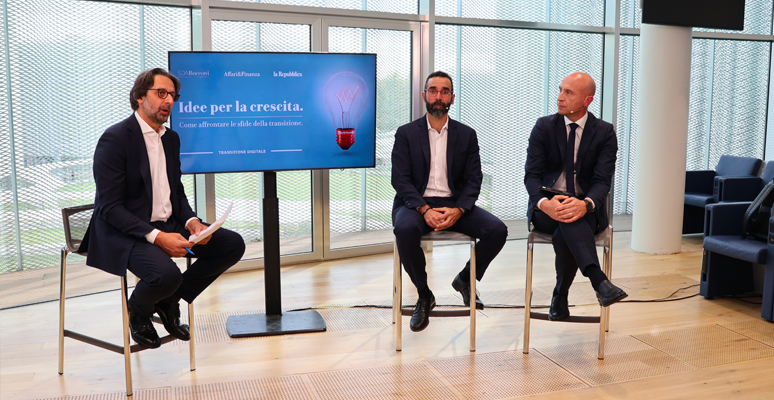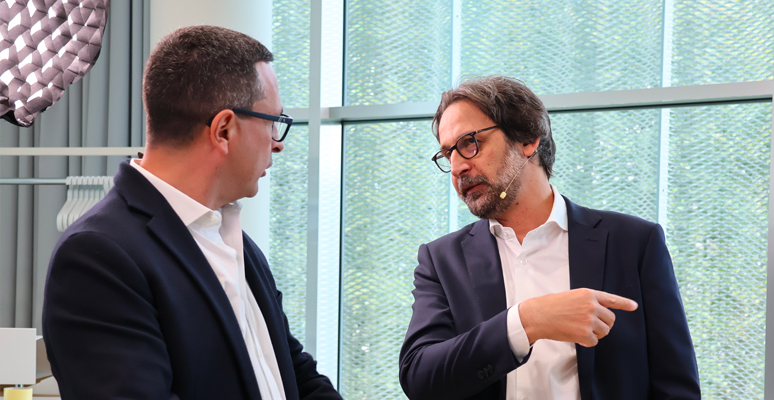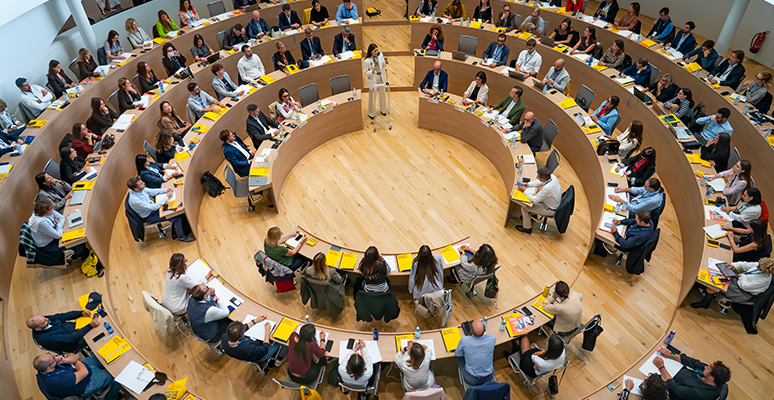
- Start date
- Duration
- Format
- Language
- 1 Dec 2025
- 3 days
- Class
- English
A journey through the digital revolution to learn how to capitalize on these enhancing technologies to gain competitive advantage in existing and new markets.
If we think that the digital transition depends solely on technological leverage, we are blindfolded with our brains switched off. Gianluca Salviotti, Associate Professor of Practice in Information Systems and Digital Transformation at SDA Bocconi, is very clear in introducing the third episode of Idee per la crescita (Ideas for Growth), a series of conversations between SDA Bocconi professors and leaders from major Italian companies, who are on the front lines of change every day. The series is organized in collaboration with La Repubblica.
If in recent years the buzzword was “digital transformation,” Salviotti instead invites companies first to ask themselves what kind of transition they need. “Luxury giants, for instance, have shown how it’s possible to extract value through a measured digitalization that doesn’t turn into a complete transformation.”

“The driving force of the transition,” Salviotti said, “must be the customer's needs.” Too often, when companies launch overly long and ambitious transformation plans, they end up stuck halfway through – they are no longer what they once were, yet they aren’t something entirely new either, and the risk of a financial crisis becomes real.
An effective transition, Salviotti explained, must balance five aspects:
The transition path should not be conceived as a plan that moves from a starting point to a final destination. The probability of embarking on bulky, risky processes is simply too high. Instead, the transition should be able to deliver value step by step, even in the short to medium term, to satisfy the company, its customers, and its investors.

“There is no ideal path,” concluded Salviotti. “The key word is consistency – with one’s history and DNA. It’s only right that different companies, even if operating in the same market, arrive at different solutions.”
Walter Galbiati, Deputy Editor of La Repubblica, used Salviotti’s remarks as a starting point to foster a dialogue between Carmelo Mariano, KPMG Partner, and Giuseppe Angelisanti, Head of Connectivity, IoT & Automation at Ferrovie dello Stato.
Speaking about the processes underway in his company, Angelisanti emphasized the importance of digital twins, which have significant applications both in the design phase and in training.
Mariano highlighted how digitalization processes can help make industrial companies attractive to young talents trained in STEM disciplines.
SDA Bocconi School of Management

A journey through the digital revolution to learn how to capitalize on these enhancing technologies to gain competitive advantage in existing and new markets.

Fornire gli strumenti per (ri)disegnare la roadmap di adozione e sviluppo dell’AI in azienda bilanciando strategia, elementi tecnologici, organizzativi e di contesto.

At the end of the program you will learn how to use key data and metrics, analyzing them with appropriate models and tools.

